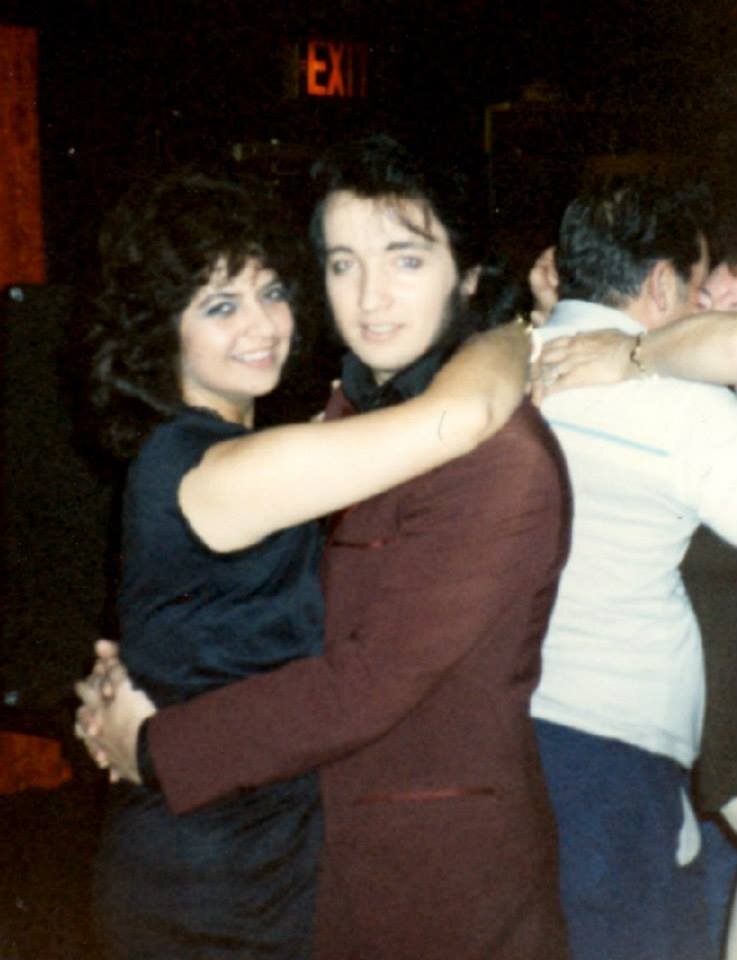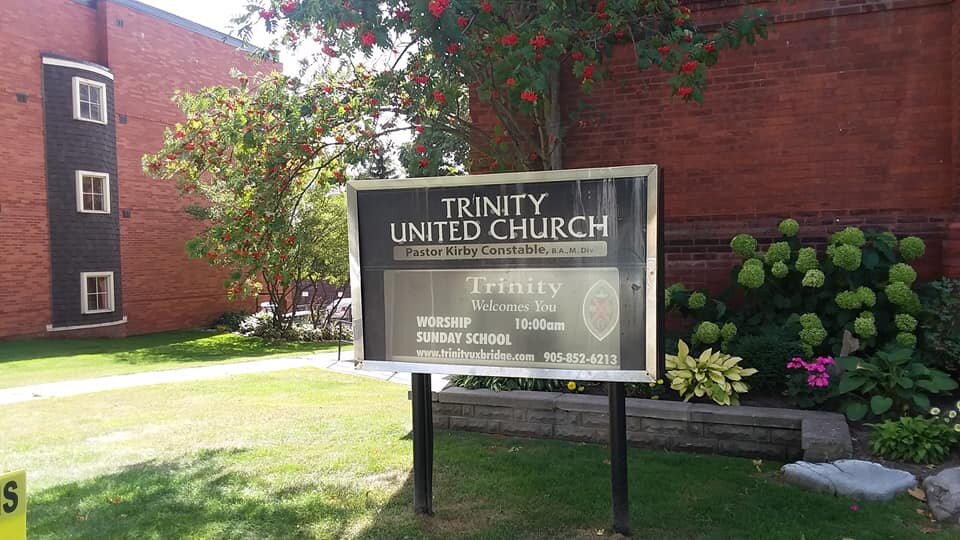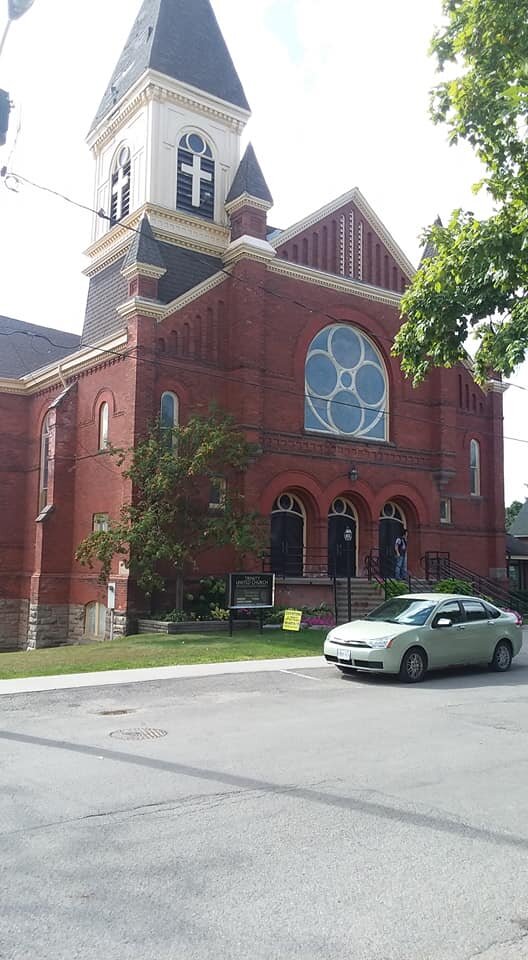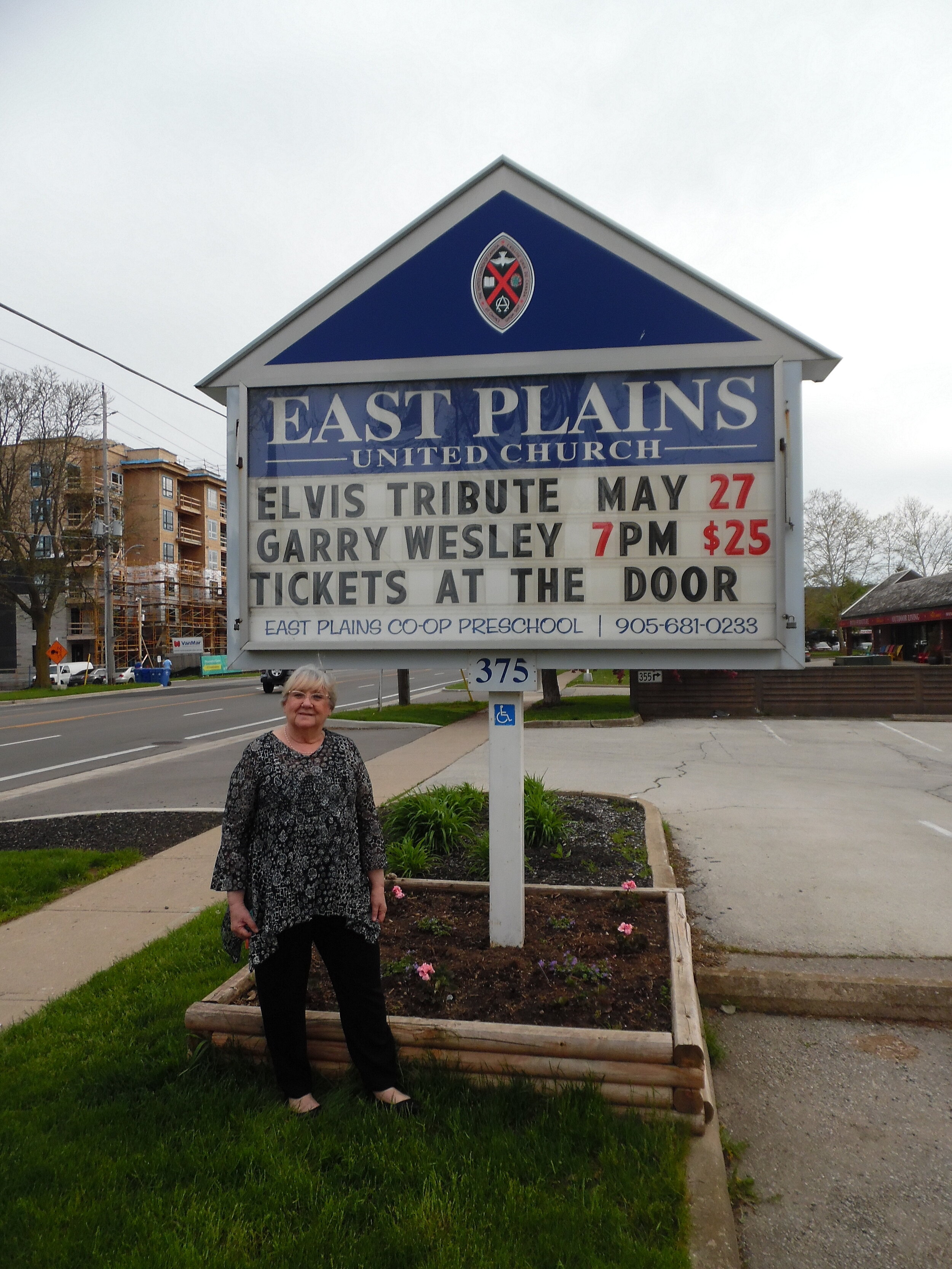Introduction
You might be thinking, if you’ve seen one Elvis impersonator, you’ve seen them all; but Wisconsin native Garry Wesley’s Elvis tribute show has been described as “closer than the closest you will ever experience”.
Being a tribute artist is sort of like a double-edged sword. It’s as much revered as it is criticized, as some see a problem with covering songs and making money from a favorite artist.
But for Wesley, it’s all about honoring “The King”.
“It’s not as bad as it was back then,” Wesley said. “Elvis fans were really critical. It was still so fresh, Elvis being gone. They didn’t want anybody replacing Elvis. And that’s not what it was about. It was about keeping the music alive, and keeping his image and legacy alive. Basically, we are promoters of Elvis Presley — like ambassadors of Elvis Presley.”
“There’s a lot of songs that people don’t remember, or some do remember, but they don’t get played a lot,” Wesley said. “We have a variety of songs and we’ll make sure that everybody hears something that they’re going to like.”
What sets Wesley apart, according to him, is his ongoing attention to detail and accurate vocalization. For Wesley, it’s practice, practice, practice.
“It’s an ongoing thing,” Wesley said. “Basically, you’re acting out a role on stage. So, you always want to try to do your best at acting out that person. When I first started, there were only 50 of us who were professional Elvis tribute artists. Today, there’s probably only 150 professional Elvis tribute artists.”
The information contained in the introduction above is credited to Kelley Simms, USA Today Network – Wisconsin. Kelley interviewed ETA Garry Wesley prior to his November 4th, 2017 concert at the Stefanie H. Weill Center for the Performing Arts, and what I have posted above are my edited excerpts from her article posted on October 25th, 2017, in the Sheboygan Press.
What follows represents more than eight hours of a phone interview that I conducted over two days with Garry Wesley. Even with that much time, we only covered a small segment of Garry’s lengthy career; and we didn’t even get to the story of how he met Elvis at a stoplight! Hopefully sometime in the future and there will be a Focus ON: Garry Wesley, The Middle Years and Garry Wesley, The Later Years. For now, please enjoy Focus ON: ETA Garry Wesley, The Early Years. Cheers! C.M.
The Interview
Q. Where were you born and raised, and where do you now call home?
A. I was born in Willard, Wisconsin. I grew up on a farm and lived there until I was 18. I now live in Necedah, WI.
Q. Tell us five interesting things about your childhood.
A. I was raised in a family with three siblings and my mom and dad. I am the youngest of four and have two sisters and an older brother. My brother was 17 when I was born. We raised cattle, mostly milking cows. I had to get up at 5 am to make sure the cows were herded into stanchions (holding brackets) for milking. What I liked best about living on our farm were the animals, the wildlife, Nipper my sister’s horse, and my crazy dog Skipper. I rode Nipper bareback and several times he would take off in a gallop then stop suddenly, causing me to flip over his head. After I got up and dusted myself off, Nipper would part his teeth and smile a big toothy grin. I was a typical kid, with lot of friends who were also farm kids. We talked about farming, rock bands, and music. At age six, I already knew about Elvis. My mom always liked Elvis since the time she saw him in the movie “Blue Hawaii”; but it wasn’t until my dad saw Elvis in the televised 1973 “Aloha from Hawaii” concert that he became a fan. I still have a cassette tape recording of the “Aloha” concert that I watched with my dad.
Q. Describe your life as a teenager. (Who were your friends? What subjects did you like at school? Did you belong to any clubs? What did you do for fun? What were your struggles?)
A. I pretty well had the same friends in high school as in elementary school, but I also made new friends, like Tony, who came from the Catholic school to the same high school in Greenwood. It was a small high school, and the students, like me, were from farms in the area. My favourite subjects were History and Science. There also was a music class in grade school, and I wanted to play drums; but my parents said. “No!” In high school I took auto mechanics because I liked machines of any kind. I didn’t belong to any clubs in high school, but I was a Boy Scout up to Junior High. For fun, I did auto mechanics, took a class on agriculture, and hung out with friends. We were bussed to the high school; but then at age 16, I got my driver’s licence. I remember laughing as I said to the bus driver on my last day riding the bus, “You won’t see me again!” But just after I got my very first car, a friend crashed my 1967 Impala into a church! What happened was: my friends, Leon and Laverne and I went to a ball game. Danny, who was from another town and had tagged along with us, begged to drive my car. “I have my licence and know how to drive,” Danny assured me. Too shy to say no, I let him drive. Danny floored the pedal and drove my car right into the side of a church, and then he took off! I took the blame for the accident. I only had the car for three days, and did not have insurance. My dad went to court with me and the Judge asked my dad what he wanted to do about the situation. The judge said there were two choices: He could issue a fine, or my dad could take away my licence. My dad opted to take away my licence. After what I said to the bus driver, it was so humiliating having to take the bus to high school again!
Q. What did you do with your time after your high school years ended?
A. As part of agriculture class, I needed to put in hours; so at age 16, I started working at a cheese factory a mile from my home part time. During the summer, I continued to work at the factory making cheese. After I graduated from high school, I worked part time in the fall at the cheese factory. I wanted to get into the mechanic class at Tech College, but the wait was two years; so I took classes in welding and fabrication.
Q. What career path did you decide to take after high school? (Did you continue your formal education? Where and why? Did you starting working? At what? Why?)
A. I graduated from Tech College with one of the highest grades in the welding and fabrication class. As soon as I graduated, one of instructors picked eight students from the class to assist in getting jobs. Right after graduation, I worked at building and fabricating wood burning and coal stoves to heat house. My cousin bought a stove from the company that I made and it was still in the house that he sold four years ago.
Q. Did you take any lessons related to the performing arts? Please explain.
A. I didn’t any lessons, but I sang in our church choir and sang with my dad at home. I also sang to my girlfriends.
Q. What music was most often heard in your home?
A. My mother and father were big country music fans. Dad played polkas, and was a fan of Frankie Yankovic, who was known as “America’s Polka King”. Mom and dad went to see them in Willard, WI. It was during a big snow storm, and not many people showed up. My uncle told Frankie that Dad played the accordion, so Frankie brought him on stage to play. It was such a memorable night for my dad. My sisters were Elvis, Beatles, Stones, and Neil Diamond fans. It wasn’t until years later that I found out later sisters loved Elvis. My brother, Ed, also loved Elvis, and had a great collection of 45s. When Ed left home to join the military, he gave me his Elvis collection.
Q. Do you recall the circumstances when you first heard Elvis Presley music?
A. I first heard Elvis when I was 6 years old. When we were young, my parents would take us to Rock Dam sandy beach on Rock Lake. There was a club called Barr’s Bar at the beach that had a jukebox. I couldn’t see the numbers to select songs, so my sisters chose the songs. When I heard “Jailhouse Rock” for the first time, I started dancing.
Q. What made you decide to embark on a career as an ETA?
A. I never intended on becoming a singer. It all happened totally by accident. I moved to Milwaukee after the stove factory closed, just three months after I started working there. My sister-in-law was working at a Kentucky Fried Chicken in Milwaukee, and said she could get me a job at KFC. In Milwaukee, I worked three jobs: I worked for an investment firm; I was a bartender; and I had my job at KFC. I met a couple of guys who became friends. We talked about music, went to Nick’s Nickabob on State Street to see Jerry Allen and the Rockin’ Robins who played all kinds of music. For Halloween in 1980, with the encouragement of my two friends who dressed as the Blues Brothers, I dressed up as Elvis— my favourite entertainer. At a friend’s suggestion, I went to Mike’s Salon to have my long and light brown hair cut and dyed. Mike, who had his own hair styled in a pompadour, showed me photos of Elvis, and asked, “Is this is what you want?” “Yes!” I replied. Mike dyed hair, my eye brows, and my eyelashes. When he was done, and he spun me around to look in the mirror, I disbelievingly asked, “Who is that!” When my friends saw me after my salon visit, they had to ask, “Garry?” to make sure it was me. I went to see my sister Audrey for help with my make up; and for my Elvis costume I wore a black shirt, black pants and jacket, and a belt with a eagle buckle. When we arrived at Nick’s that night, the bouncer said, “You guys are late for the show. The band is waiting for you.” Happy to save the $2 entrance fee that would buy us a couple rounds of beer, we entered. Jerry, lead singer for the Rockin’ Robins, said to the audience, “Hey, we got Elvis in the audience!” Unsure at first if he was talking to me, I headed to the stage shaking as I went. Five minutes seemed like five hours, but I got through a medley of Elvis songs with the band. I must have done alright because Nick the owner asked if I had a band. At the time, I didn’t, so Nick said to call him when I formed a band. Later that evening, my friends and I went to two other clubs in our costumes and I got business cards and offers even without singing. People were asking for autographs! Some people who were at Nick’s Nickabob tell me they still remember that night 1980.
Through someone my brother knew at the bar, I was introduced to Mike who had a recording studio. It was a time before karaoke, but Mike was able to erase Elvis’s voice so I could sing with an original recording. I was constantly “wood shedding” (practicing) in those days, and even went to sleep listening to recordings of Elvis’s music.
Q. Describe what you were feeling before, during, and after your first performance as an ETA.
A. At the Vegas Club in Brookfield, WI, one of the clubs we visited on Halloween, they used taped music instead of a live band, so I was able to do an audition using one of the tracks Mike prepared. The stage at the Vegas Club was like the “’68 Comeback”-- very intimidating with nowhere to run. Mike, my, buddy looked after sound. The shows started at 6 pm with the dinner crowd, and each of the four acts did three 20 minute sets. At first I wore the black shirt, pants and jacket from Halloween; then a girl I was dating made a jumpsuit for me. My friend, Linda, who ran theatres, had reels of Elvis. Linda asked if I wanted to see the Elvis movies and concerts after hours at the theatre. On a Wednesday night from 12 midnight until 10 the next morning, I watched a marathon of Elvis concerts and performances, and went back in the weeks following to see all of Elvis’s movies. I used all I learned watching Elvis’s concerts and movies in my performances. I was initially told that I had a gig once a month as a trial; but after first week, I asked to come back every weekend. I ended up making more money performing as Elvis than I did at three part time jobs. Since my gigs ended at 9 pm, I went to country club and watched the brother and sister act, the Spaldings, and their band. They used to ask me to get up to sing with their band. I also occasionally sang with Jerry Allen, from Brooklyn, NY, and the Rockin’ Robins at Nick’s Nickabob. I wanted to get used to singing with a band. Six months after I started at the Vegas Club, the owner had a heart attack. He left an envelope for me that contained money. The owner’s kids insisted I take the money as a month’s notice. Soon after, the kids closed club.
As I was putting a band together, I sang with other bands to keep my name out there. I developed a band that did a mixture of music. I did Elvis for thirty minutes, but the band did other music for fifteen minutes. It was a much different feel performing with a live band. The expectation of those who saw the shows was that they were seeing a show featuring me as Elvis, and the band just played music. My first band was together for six months, but two brothers in the band did not get along; so after the band disbanded, I created a different band. Kerwin was the drummer, and I added a female singer, piano player, and two guitarists. I asked if they could do different tributes, so my keyboard player was Jerry Lee Lewis, our singer was Olivia Newton John and Linda Ronstadt, our guitarist was Buddy Holly, and our bass guitarist was Richie Valens. The band loved that they got to perform as their idols in a show of multiple tribute artists—long before “Legends in Concert”. My second band lasted two years. Our singer went to college; I had to fire keyboard player after he mouthed off at the manager; the guitar player’s wife wanted him to stay home more; and the bass player moved out of town to LA, which left just the drummer, Kerwin, and me. We performed together for five years until he went on to be an English teacher. Before we parted ways, we put together five different bands. We played in some big places, and did a lot of travelling. I continued on with another group while Kerwin went to school: GL Wesley and Days Gone By, GL Wesley and Memphis (then Memories), then back to Memphis Rockers. I have had a band for over thirty years. My original keyboarder, guitarist, and drummer lasted fifteen years. Several band members from different groups, such as Change of Habit, Fever and the Ambassadors, whom I knew from other shows, intertwined with my band.
Q. What was different about your 2003 performance at the Tribute to the King competition in Lula, MS, that led to your first place win?
A. I won first place in the Tribute to the King completion in Lula, Mississippi, in 2003. I took home the highest payout for an Elvis Tribute contest--$50,000! Judging was based on look, sound, and performance, and with only eight minutes on stage, I had to pick my songs wisely. I chose “Suspicious Minds”, “Hurt”, and “Can’t Help Falling in Love”. My goal was to recreate how Elvis did these songs and interact with the crowd. Anyone could have won, but they chose me.
So ends the first part of Garry’s interview—The Early Years. If you would like the story to continue, please let Garry know in the comments below. Thank you to all ETA fans and SIDEBURNS Magazine followers. You are the best!
I would like to thank Nigel Husing, Garry Wesley’s manager in Ontario, for helpful communication.

















